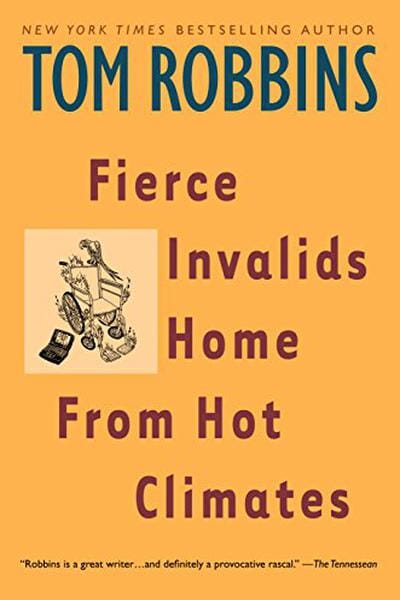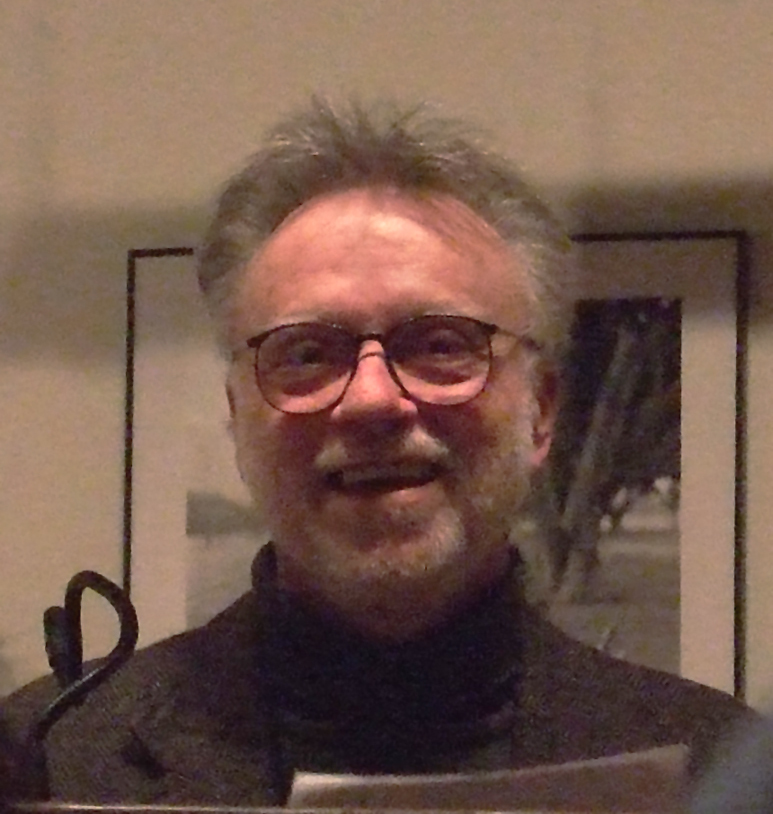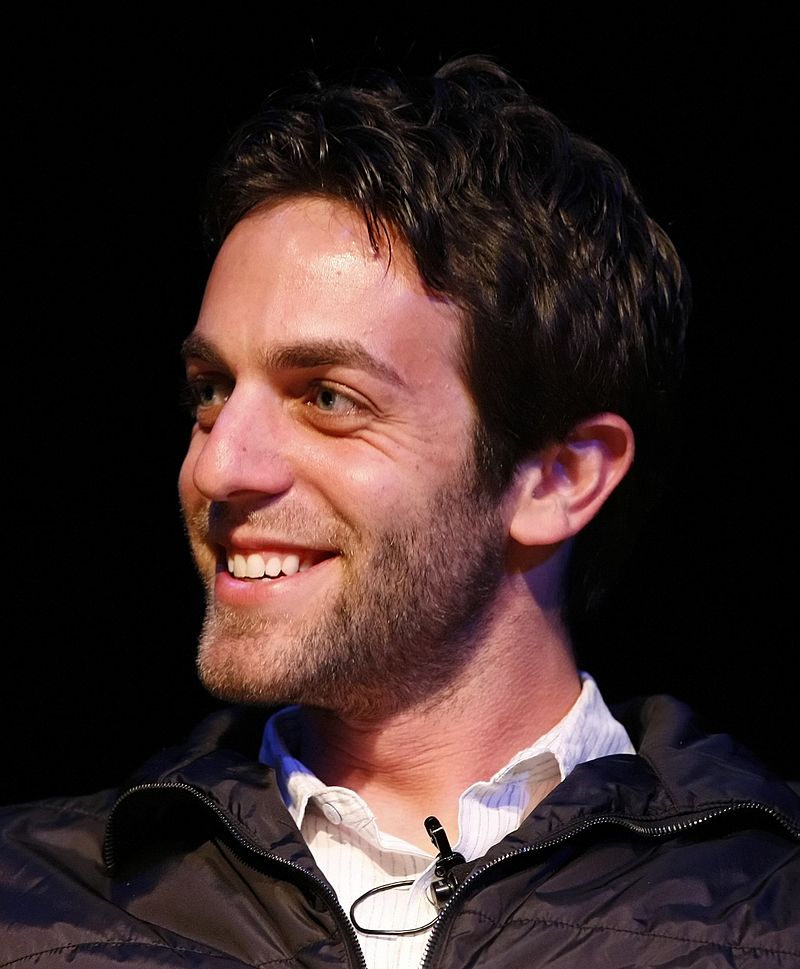 author
authorDiscover the Best Books Written by Tom Robbins
Thomas Eugene Robbins (born July 22, 1932) is a best-selling and prolific American novelist. His most notable works are "seriocomedies" (also known as "comedy-drama"), such as Even Cowgirls Get the Blues. Tom Robbins has lived in La Conner, Washington, since 1970, where he has written nine best-selling books. His latest work, published in 2014, is Tibetan Peach Pie, which is a self-declared "un-memoir." Even Cowgirls Get the Blues was adapted into a movie that shares the same name by Gus Van Sant in 1993.
Robbins was born on July 22, 1932, in Blowing Rock, North Carolina, to George Thomas Robbins and Katherine Belle Robinson. Both of his grandfathers were Baptist preachers. The Robbins family resided in Blowing Rock before moving to Warsaw, Virginia when the author was still a young boy. In adulthood, Robbins has described his young self as a "hillbilly." Robbins attended Warsaw High School (class of 1949) and Hargrave Military Academy in Chatham, Virginia, where he won the Senior Essay Medal.
The following year he enrolled at Washington and Lee University to major in journalism, leaving at the end of his sophomore year after being disciplined by his fraternity for bad behavior and failing to earn a letter in basketball. In 1953, he enlisted in the Air Force after receiving his draft notice, spending a year as a meteorologist in Korea, followed by two years in the Special Weather Intelligence unit of the Strategic Air Command in Nebraska. He was discharged in 1957 and returned to Richmond, Virginia, where his poetry readings at the Rhinoceros Coffee House led to a reputation among the local bohemian scene.
In late 1957, Robbins enrolled at Richmond Professional Institute (RPI), a school of art, drama, and music, which later became Virginia Commonwealth University. He served as an editor and columnist for the college newspaper, Proscript from 1958 to 1959. He also worked nights on the sports desk of the daily Richmond Times-Dispatch. After graduating with honors from RPI in 1959 and indulging in some hitchhiking, Robbins joined the staff of the Times-Dispatch as a copy editor.
In 1962, Robbins moved to Seattle to seek an M.A. at the Far East Institute of the University of Washington. During the next five years in Seattle (minus a year spent in New York City researching a book on Jackson Pollock), he worked for the Seattle Times as an art critic. In 1965, he wrote a column on the arts for Seattle Magazine as well as occasionally for Art in America and Artforum.[9] Also during this time, he hosted a weekly alternative radio show, Notes from the Underground, at non-commercial KRAB-FM, Seattle.
It was in 1967 while writing a review of the rock band The Doors, that Robbins says he found his literary voice. While working on his first novel, Robbins worked the weekend copy desk of the Seattle Post-Intelligencer. Robbins would remain in Seattle, on and off, for the following forty years. In 1966, Robbins was contacted and then met with Doubleday's West Coast Editor, Luthor Nichols, who asked Robbins about writing a book on Northwest art. Instead, Robbins told Nichols he wanted to write a novel and pitched the idea of what was to become Another Roadside Attraction.
In 1967, Robbins moved to South Bend, Washington, where he wrote his first novel. In 1970, Robbins moved to La Conner, Washington, and it was at his home on Second Street that he subsequently authored nine books (although, in the late 1990s, he spent two years living on the Swinomish Indian reservation). In the 1980s and early 1990s, Robbins regularly published articles and essays in Esquire magazine and also contributed to Playboy, The New York Times, and GQ.
When Robbins began writing Jitterbug Perfume in 1982, Robbins made a contract with editor Alan Rinzler. As he had a large following, he had the leverage to stipulate a contract with Rinzler where they would accompany Tom on three-holiday trips to resorts. Tom would choose where he could discuss the work-in-progress novel, which Rinzler later discovered was Jitterbug Perfume. Alan Rinzler later wrote this on the topic of editing for Robbins:
Tom would read out loud from his work in progress, and I would comment. Just a few pages at a time. He was a real southern gentleman and welcomed intellectual discourse about his theme, characters, and intentions from the inside. He took the process of conception, research, trial, and error, moving things around, changing voices and pitch very seriously, wrote slowly and carefully, revised constantly, developing, refining, and evolving this novel over the course of about two years.
Michael Dare described Robbins' writing style in the following manner: "When he starts a novel, it works like this. First, he writes a sentence. Then he rewrites it again and again, examining each word, making sure of its perfection, finely honing each phrase until it reverberates with the subtle texture of the infinite. Sometimes it takes hours. Sometimes an entire day is devoted to one sentence, which gets marked on and expanded upon in every possible direction until he is satisfied. Then, and only then, does he add a period". When Robbins was asked to explain his "gift" for storytelling in 2002, he replied:
I'm descended from a long line of preachers and policemen. Now, it's common knowledge that cops are congenital liars, and evangelists spend their lives telling fantastic tales in such a way as to convince otherwise rational people that they're factual. So, I guess I come by my narrative inclinations naturally. Over the course of his writing career, Robbins has given readings on four continents, in addition to the performances that he has delivered at festivals from Seattle to San Miguel de Allende. Robbins also read at Bumbershoot in 2014.
Best author’s book





















